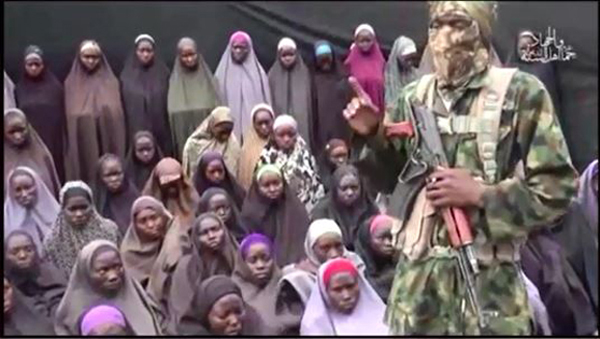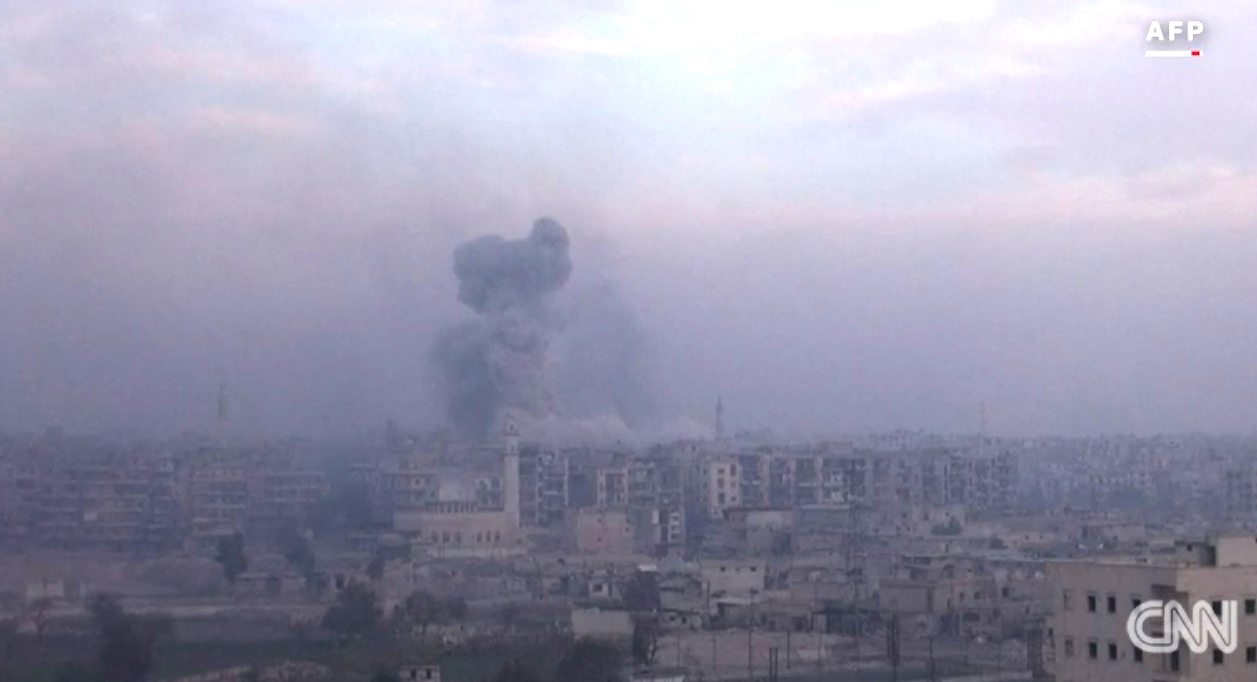
ABUJA, Nigeria (BP) — The Nigerian government has secured the release of 21 Chibok schoolgirls kidnapped by Boko Haram more than two years ago, a Nigerian government official announced on Twitter today (Oct. 13).
The kidnapping saga is part of the continuing horrors in Nigeria caused by the terror group, with an estimated 25,000 people, including many Christians, killed by Boko Haram in northeastern Nigeria since 2009 in its attempts to establish strict Sharia law across the country.
An estimated 2.6 million people have also been displaced in violence that has created a multifaceted humanitarian crisis in Nigeria, called by the 21st Century Wilberforce Initiative and former Congressman Frank R. Wolf in July as the “gravest” in the world.
Boko Haram released the 21 girls to the Nigerian Department of State Services, according to presidential spokesperson Mallam Garba Shehu who also tweeted, “The names of the released girls follows [sic] shortly.”
The girls who had been taken from the mostly Christian town of Chibok in April 2014 were released in exchange for four Boko Haram prisoners who were being held in the town of Banki in northeast Nigeria, an undisclosed source told the French news agency AFP. Negotiations were brokered by the Red Cross and the Swiss government, Shehu said in a series of tweets.
About 200 of the kidnapped girls remain missing.
“It is confirmed that 21 of the missing Chibok Girls have been released and are in the custody of the Department of State Services, DSS. The release of the girls, in a limited number, is the outcome of negotiations between the administration and the Boko Haram … brokered by the International Red Cross and the Swiss government,” Shehu tweeted just after 5 a.m. “The negotiations will continue.”
Nigerian President Muhammadu Buhari “welcomes the release of the girls but cautioned Nigerians to be mindful of the fact that more than 30,000 fellow citizens … were killed via terrorism,” Shehu tweeted.
The released girls were said to be resting, “with all of them very tired coming out of the process,” Shehu said.
The international group Bring Back Our Girls that has advocated for the girls release welcomed Shehu’s report.
“This wonderful development confirms what we have always known about the capacity of our goverment [sic] to rescue our #ChibokGirls,” spokespersons for the group tweeted. “While awaiting further details, we take this opportunity to salute the work of our security services at the front lines — the commitment, resilience and tireless efforts of our members of the Multi-national Joint Task Force and the civilian JTF. We also thank the International Committee of the Red Cross, the Swiss government and all negotiators involved in securing the release.”
The advocacy group called for the government to make “the safety, security, and well-being of the other girls a high priority” and urged “the international community to continue to support our government’s effort to rescue all other abducted Nigerians, so that parents, the Chibok community, the nation, and the world can finally put an end to this nightmare once and for all.”
As recently as Sept. 22, Buhari reiterated his willingness to negotiate the girls’ release with “bonafide leaders” of Boko Haram, described as fractured, and invited the United Nations to serve as an intermediary.
“The challenge is in getting credible and bonafide leadership of Boko Haram to discuss with,” Buhari said in a press release. “The split in the insurgent group is not helping matters. Government had reached out, ready to negotiate, but it became difficult to identify credible leaders. We will welcome intermediaries such as UN outfits to step in.”
Boko Haram has been identified as still under the leadership of Abubakar Shekau, a jihadist at times reported dead and whom the Islamic State group claimed to have replaced on Aug. 3 with Abu Musab al-Barnawi.
Dozens of girls said to be among those kidnapped from Chibok are shown in a video Boko Haram released Aug. 14 offering the girls in exchange for the release of imprisoned terrorists. An armed and masked Boko Haram member speaking on the video said some of the girls had been killed in airstrikes by the Nigerian military and 40 had been married, but he did not specify the number of girls who remained alive, the Associated Press reported. He identified Shekau as Boko Haram’s leader.
An earlier video surfaced in April that Boko Haram had given the Nigerian government in December 2015 as a “proof of life” footage of 15 of the Chibok girls and claiming all of the girls at that time were alive and well. In May, an escaped Chibok girl was rescued in the Sambisa Forest with a baby and an ex-Boko Haram member who claimed to be her husband.
The Chibok ordeal began in April 2014 when Boko Haram kidnapped 276 girls from the Chibok government boarding school. Nearly 60 of the girls managed to escape from the backs of trucks either during the kidnapping or shortly afterward as Boko Haram camped.
Buhari declared a “technical” defeat of Boko Haram in December 2015, noting that the terrorists’ attacks had been scaled back from territorial takeovers and were limited to suicide bombings.
Boko Haram at its height had established caliphates in towns covering about 20,000 square miles in advance of the March 2015 Nigerian national elections, but a multinational military force managed to recapture the towns.



















